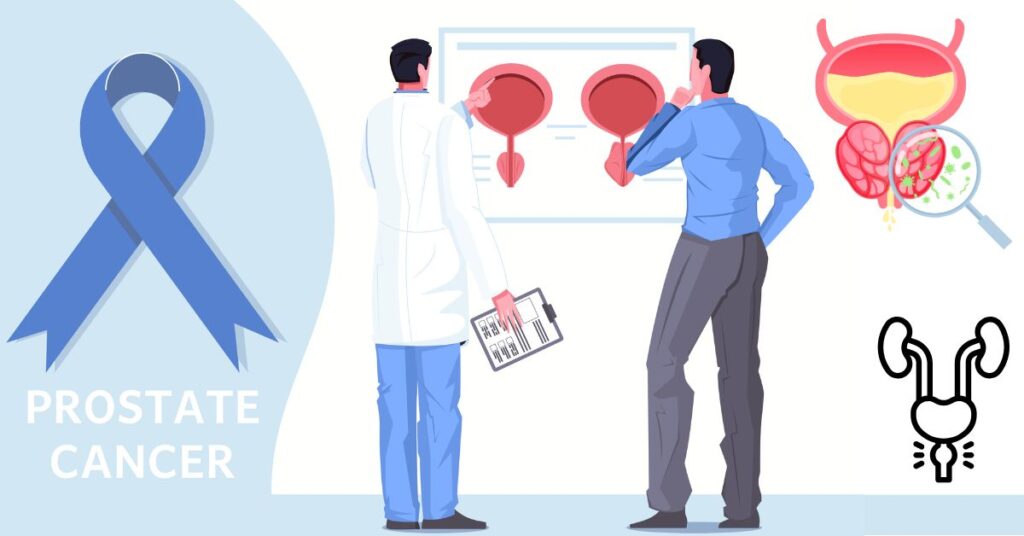Prostate cancer often grows slowly, especially in the early stages. However, recognizing the early warning signs can lead to faster diagnosis and treatment.
1. If You Have Recurrent Urination – Especially at Night
One of the first noticeable signs is the increased need to urinate, particularly during nighttime (nocturia). This happens because the growing prostate may press on the urethra, disrupting normal urine flow.
2. If Difficulty Starting or Stopping Urine Flow
Men may experience hesitancy in starting urination or feel that their bladder is not empty after urinating. In some cases, there may be dribbling or a weak stream.
3. If Blood in Urine or Semen
A more serious warning sign is the presence of blood (hematuria or hematospermia). Though other conditions can cause this, it should never be ignored and always warrants medical attention.
4. If Pain or Discomfort in the Pelvic Area or Lower Back
Persistent pelvic, hip, or lower back pain may be a sign that prostate cancer has spread to nearby tissues or bones. This is more common in advanced stages of the disease.
5. If Erectile Dysfunction or Painful Ejaculation
Changes in sexual function, such as difficulty getting or maintaining an erection or painful ejaculation, may also be linked to prostate issues, including cancer.
✅ Conclusion: What You Need to Know About Prostate Cancer Symptoms?
Prostate cancer can be silent in its early stages, but your body often gives subtle signals — it’s essential to listen.
Besides the primary signs like frequent urination, weak urine flow, blood in urine or semen, and pelvic discomfort, changes in sexual function—such as erectile difficulties or painful ejaculation—can also be early red flags. These symptoms don’t always mean cancer, but they should never be ignored.
Key Takeaways:
-
Don’t ignore persistent urinary or sexual symptoms.
-
Get routine checkups, especially if you’re over 50 or have a family history.
-
If symptoms appear suddenly or worsen, consult a urologist immediately.
-
Early detection increases treatment success and survival rates.
Take action today — your health is your greatest asset. Being informed and proactive is the best defense against serious health conditions like prostate cancer.
FAQ about Prostate Cancer.
The first noticeable sign is often difficulty urinating or a weak urine stream. This happens because the prostate gland enlarges and presses against the urethra, affecting normal flow.
Yes. When prostate cancer spreads to bones, especially the lower back or hips, it may cause persistent pain in those areas. This usually appears in advanced stages.
While not always the first symptom, erectile dysfunction (ED) can occur due to prostate cancer or treatment side effects. Pain during ejaculation may also be a warning sign.
Most prostate cancers grow slowly, but some can be aggressive. Regular screening helps detect whether it’s slow-growing or needs urgent treatment.
Yes, the PSA (Prostate-Specific Antigen) blood test is a common early detection tool. Elevated PSA levels can indicate cancer or other prostate conditions.
